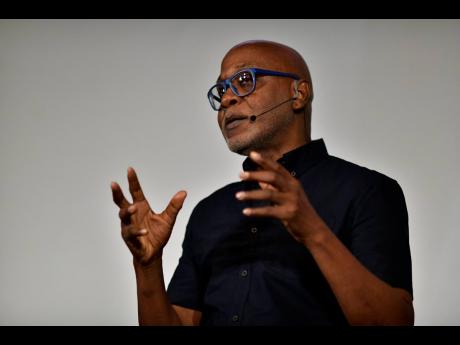Record profit for Pulse as hospitality division grows
Lifestyle company Pulse Investments Limited, which expanded the hospitality operations at its New Kingston location to include accommodations, more than doubled profits at year ending June.
Chairman Kingsley Cooper says Pulse, which operates a model agency, saw varying degrees of improvement across all lines of business, including media content production and distribution, property rentals, model agency representation, and live events, as well as branding and sponsorships.
Pulse pulled in revenue of $620 million, or 40 cents per share, for the year, up from $44 million, or 19 cents per share, while its bottom line expanded from $302 million to a new record of $653 million.
The biggest gains were in media content production and distribution and property rentals. TV shows pulled in $253.3 million for the group, up 71 per cent over the $147.8 million recorded in 2018.
The increase in property rentals, according to Cooper, largely reflects the new hospitality business, Pulse Rooms at Thirty Eight, a boutique property offering accommodation. That segment was up 48 per cent from $59.5 million in 2018 to $88 million this year.
The results reflected six months of operations for Pulse Rooms.
“After opening in December, and with only half a year on a start-up business segment, the 20 rooms at Thirty Eight managed to push about 40 per cent average occupancy, and that’s with little promotion – we only did direct sales and social media,” Cooper said.
The property initially offered 22 rooms, but two have been converted to common areas for dining and lounging, he said.
“With those 20 rooms, we hope to achieve full occupancy by, say, second quarter,” said Cooper when asked whether the 40 per cent occupancy could generate real profit for the operation.
“Certainly, by the end of the first quarter, we want to be doing 70-80 per cent [occupancy] by coming from all angles with the marketing push. We will be optimising channels such as our website, Expedia, Airbnb, and corporate rentals,” he said.
The average room rates at Thirty Eight through Expedia range from US$100 to US$140 per night, but rates of US$90 to US$110 per night are available through direct bookings.
The company’s other hospitality property, Villa Ronai, which caters to a more upmarket crowd, is undergoing expansion.
“By the end of 2020, we hope to have 68 suites, but certainly, by around March, we want to have the first 40 opened, served by two restaurants and two function areas,” the chairman said.
Introductory rates for Villa Ronai will run between US$120 and US$150 per night.
“Villa Ronai is a premium experience, as distinct from Thirty Eight, where it is more attuned to the business and cultural traveller. We’re giving people premium at a reasonable price,” Cooper said.
Pulse Model Management brought in just under $60 million for the year, up 42 per cent from $42.1 million.
Pulse represents hundreds of models, but only 12 of them have any international recognition, he said, including stars such as leading supermodel from the Caribbean Alicia Burke and Jeneil Williams. Burke is among the top 40 earners in modelling worldwide, according to models.com.
As for the staging of live events, that has been part of Pulse’s history, it’s no longer a market segment on which the company places emphasis.
Such events are risky and have become more important to Pulse as a source of content.
“What you’ll find is that they eventually become TV shows, and then there are the TV series that are separate but related to the live events. While we’re not moving away from it, we’re not seeing live events as a growth area except in our global operations,” Cooper said.
Pulse will continue with smaller-scale productions such as Fashion Week, Caribbean Model Search, and small live concerts that can be monetised as content for TV. Pulse gets paid in ‘advertising credit’ for the content it provides, which it can sell later as sponsorship credits or use for Pulse’s own marketing.
Cooper says Pulse booked more than $60 million in advertising deals in its past financial year.

